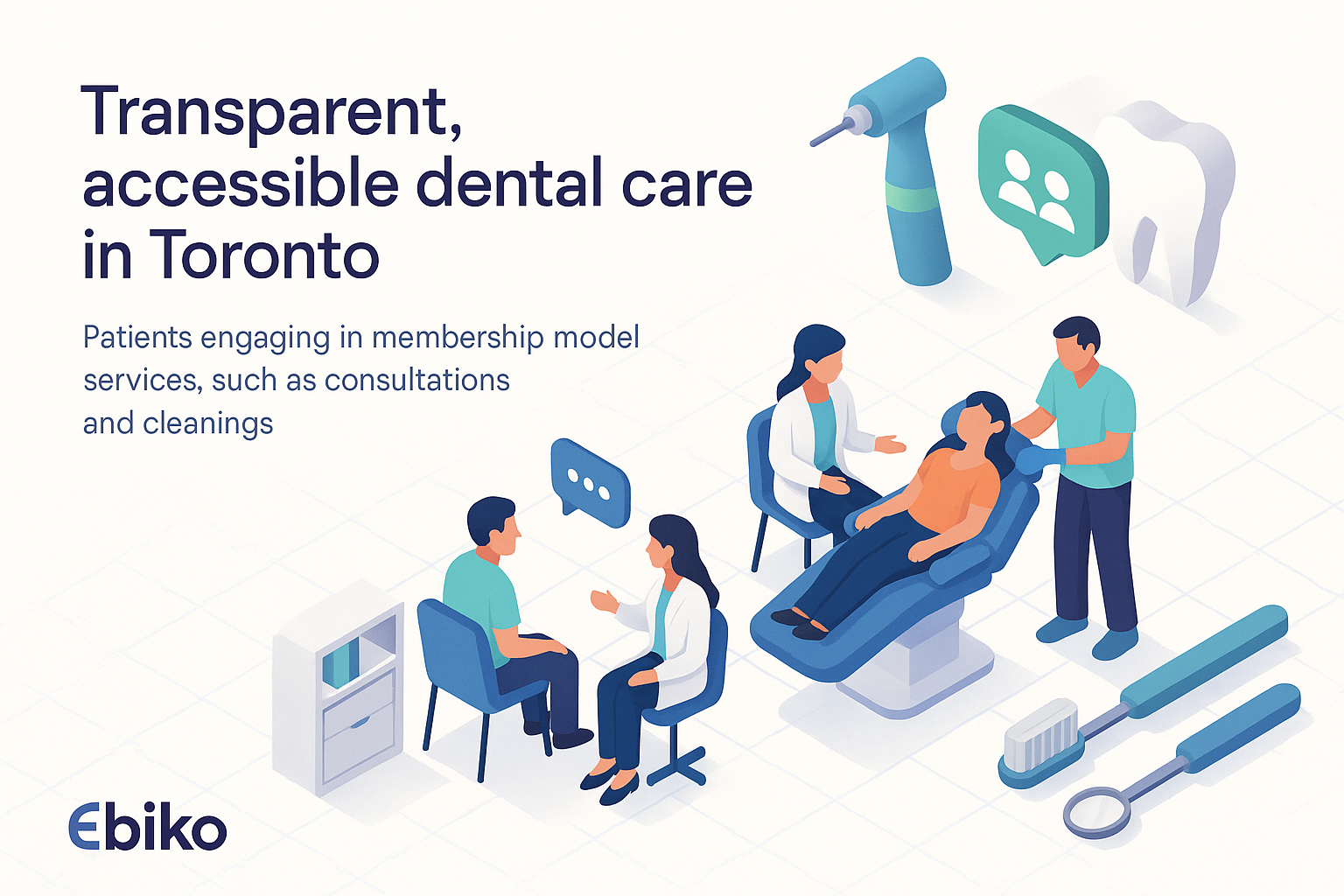Why Patients Embrace Membership Models in Dental Care

In the ever-evolving landscape of Canadian dental care, clinics are continually seeking innovative strategies to build patient trust, improve accessibility, and ensure predictable revenue. One increasingly popular solution gaining momentum among dental professionals in the Greater Toronto Area (GTA) is the UDC membership model. This alternative to traditional dental insurance offers a transparent, patient-first approach designed to streamline care delivery and reinforce long-term loyalty.
1. No Insurance. No Surprises. Just Access.

Insurance policies often create confusion, administrative delays, and unexpected expenses for patients. The UDC membership model eliminates the need for insurance entirely, replacing it with a flat-fee or subscription-based structure. Patients in Toronto benefit from:
- No annual limits
- No deductibles or co-insurance complexities
- Clear and predictable pricing from day one
By removing financial guesswork, patients are more likely to engage in regular care, which improves compliance and fosters a positive, low-stress treatment environment. Clinics using this model can further optimize patient flow using quality chairside tools and diagnostic units found at EBIKO Dental, which help streamline treatments efficiently under a predictable patient load.
2. Preventive Care That Feels Proactive

The UDC membership typically includes semi-annual cleanings, exams, and x-rays with minimal or no copayment. This encourages patients to visit their dentist consistently rather than delaying care due to cost. This shift toward preventive-first dentistry aligns with Canadian best practices and also enhances clinical workflows.
Dental professionals leveraging EBIKO's preventive care dental consumables can deliver efficient hygiene services with low overhead. Preventive models not only reduce the frequency of major interventions but also elevate practice sustainability and patient health outcomes over time.
3. Discounts That Reward Loyalty

Many patients are hesitant to proceed with treatment due to pricing uncertainty. However, loyalty-based discount structures embedded in the UDC model directly address this barrier. Patients who maintain their membership receive clear, upfront discounts on restorative and elective procedures. This encourages case acceptance and helps patients feel empowered to say “yes” to the treatments recommended by their dentist in Toronto.
When paired with efficient dental tools—such as EBIKO’s high-performance handpieces—clinics can deliver outstanding care while keeping operational costs in check.
4. A Relationship, Not a Policy

Traditional insurance models often insert third parties into the relationship between patient and provider. In contrast, UDC membership dentistry builds direct, long-term relationships, fostered by continuous, seamless care delivery. This approach humanizes the dental experience, keeps patients engaged, and improves continuity of care.
Many GTA practices using this approach report higher recall rates and improved patient satisfaction scores. Tools like LED curing lights or digital radiography systems from EBIKO Dental enhance appointment efficiency and help build trust with streamlined treatment experiences.
5. Patients Who Stay—and Spread the Word
With transparent pricing, ongoing communication, and real value, patients are not only more likely to stay with a practice long term—they also become active promoters. Practices that adopt this model note an increase in referrals from satisfied members, particularly in urban settings like Toronto, where word-of-mouth and online reviews have strong influence.
Stronger retention equates to more predictable revenue cycles, steady growth, and better planning for staffing and supply procurement—especially when using established Canadian dental supply sources like EBIKO’s clinic essentials and infection control products.
6. Transparent, Predictable Dental Journeys

Unlike insurance policies filled with fine print and exclusions, UDC membership plans offer upfront, all-inclusive structures that eliminate patient confusion. Patients know exactly what their plan encompasses, helping them confidently engage in all aspects of care such as fillings, cleanings, or even advanced restorations.
Dental clinics in the GTA can simplify consultations by using intraoral cameras, visual guides, and demo models, available through suppliers like EBIKO Dental, making communication clearer between provider and patient.
7. Community Health Impact in the GTA

Membership models promote community oral health awareness by increasing access points and reducing care barriers. In high-density areas like Toronto, making care accessible to underserved groups improves overall public health literacy and decreases emergency room visits related to oral infections or decay.
Clinics participating in such programs often supplement membership-based care with accessible public education programs or outreach—furthering their role as community health stewards. Tools supporting mobile care and outreach service—such as EBIKO’s portable dental units—make joining such initiatives a practical extension for modern practices.
Conclusion: The UDC dental membership model is more than a pricing strategy—it’s a shift toward long-term, relationship-driven oral health in the GTA. As Canadian clinics look towards the future of dentistry, embracing models that align patient and provider goals can enhance efficiency, retention, and impact. Practices supported by trusted partners like EBIKO Dental are uniquely positioned to succeed in this evolving field.

